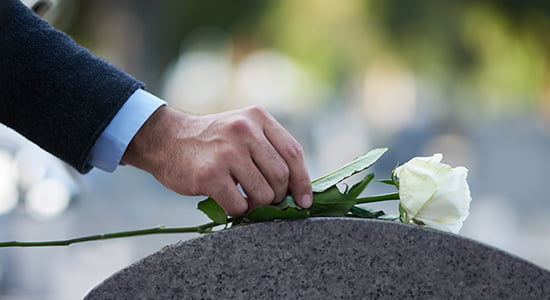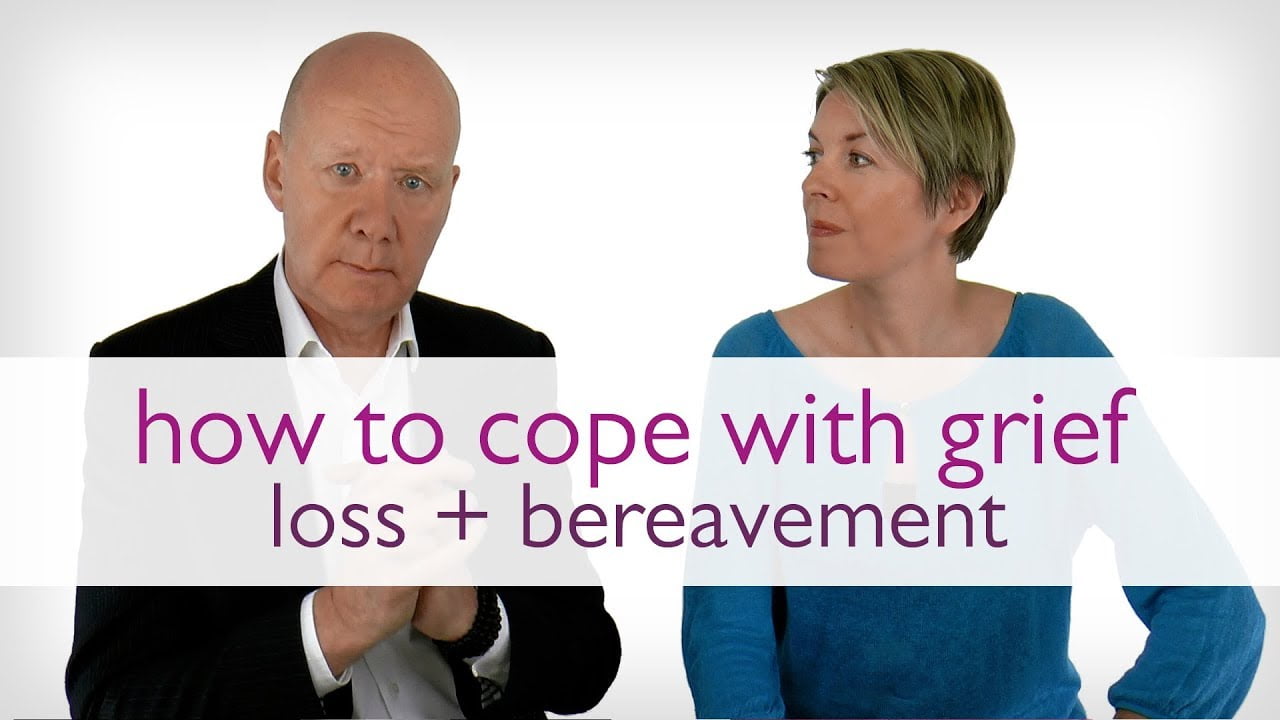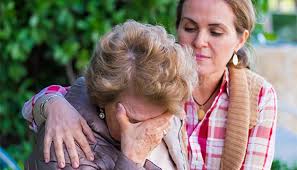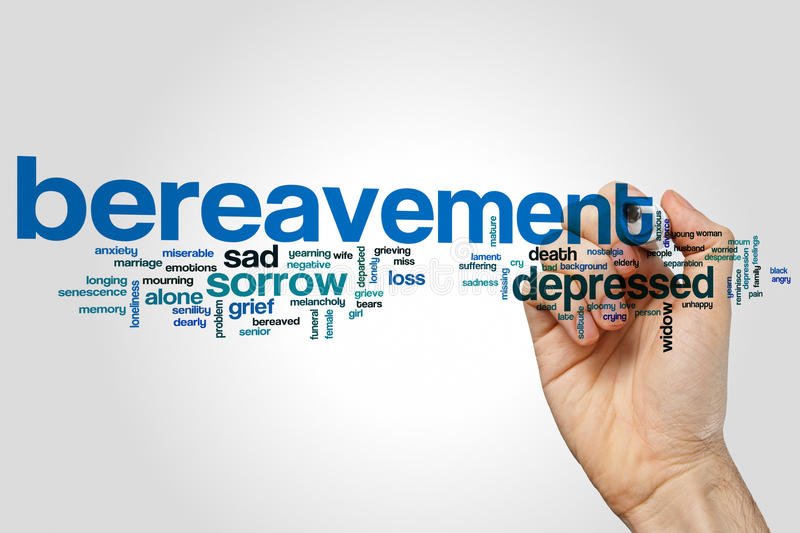Bereavement is a difficult and emotional subject. For some people, it can be the most traumatic experience they’ve ever had to go through. That’s why we created this guide for you: so that you know what to expect and how to cope with bereavement. Here at Mantra Care, we want you to be able to move on from your loved one in peace and comfort – because after all, no matter what happens, life goes on.
Contents
What is bereavement?

Bereavement is when you’ve lost somebody close to you. It could be somebody who has died or left. It is very difficult for people’s mental health when they lose a loved one. This can cause symptoms such as depression and anxiety.
What are the stages of bereavement?
When you are grieving, it takes a long time. But most people go through different experiences in their life. In order from first experiencing them to last, here are some emotional stages you may experience:
What can I expect from these stages?
Everyone is different, but there are some general guidelines that most people follow as they experience the emotional stages of bereavement:
- shock & disbelief – you may feel like it’s not real or refuses to accept what happened;
- numbness or detachment – you may feel like you’re not really there and are just going through the motions;
- sadness and pain – this is usually when the most tears are shed and it feels like the world has ended;
- anger – feeling angry is completely natural, but it’s important to try and find constructive ways to deal with it.
Understanding the grief of losing a loved one

Grief is the emotional response you have to lose a loved one. This feeling is different for everyone. It can come out in many ways, like sadness, anger, anxiety, and depression. For some people, grief can be so overwhelming that it becomes hard to live with day-to-day.
Losing a spouse or partner
Losing a spouse or partner can be hard. You don’t know how to act, and you’re not sure what to do. Many people feel like they have lost part of themselves when their loved ones died. They are sad and understand that feeling. In these cases, it becomes important to surround yourself with friends and family – even if you’re not used to it.
Losing a friend or family member
It’s hard when someone you know dies. It can feel like your world has fallen apart and no one will ever replace them in your heart. That being said, try not to isolate yourself and be around those who love you.
Losing a child
Losing a child is the worst possible thing that can happen, but it does get easier with time. It is natural to be angry and frustrated at the world when you lose your little one. It can be hard if they did nothing to deserve it. But remember: your child wouldn’t want this pain for you, so try not to let them down.
Grieving your loss
It’s important to remember that grief is a long process and it takes time to heal. If you need help, you can go to a therapist. They will listen to you and not tell other people what you say. Remember: grieving doesn’t have any rules so don’t be afraid of doing something outside your comfort zone.
- Allowing yourself to feel: Everyone has their own way of dealing with grief, but it’s important to remember you’re allowed to feel. Some people find crying to be the best way of releasing their emotions. But this is good because when they cry, it helps them heal faster than they realize. Other people find comfort in writing about what they’re feeling or talking through it with someone they trust.
- Grief doesn’t always move through stages. There is no time limit on grieving. Grief comes in waves and sometimes it’s hard to predict when the next one will hit. The most important thing to remember is that you are not alone in your grief. There are people who care about you and want to help, even if you don’t feel like reaching out.
- Prepare for painful reminders: It is understandable that you don’t want to see reminders of the person you loved. That would be painful. But at some point, you’re going to have to start facing these things head-on and finding a way through it all.
- Moving on doesn’t mean forgetting your loved one: It’s not about forgetting your loved one. It’s about learning to live without them and building a life that honors their memory.
There is no right or wrong way to go through the stages of grief, but it is important to remember that there are people who care about you and want to help. You don’t have to do this alone.
Seeking Support Through Bereavement

There are many ways to seek support through bereavement. You can go to a therapist, join a grief group, or talk to your friends and family about how you’re feeling. Some of them are:
- Lean on friends and family: Having a strong support system can make all the difference in your life. This is why it’s important to lean on friends and family when you need them, even if that means having uncomfortable conversations.
- Join a bereavement group: There are many groups out there that focus on helping people through their grief. This can be a great way to find support and meet new people who understand what you’re going through.
- Therapy: If you feel like you need more help, therapy may be the right staple conversation. It might be hard for them too, so try not to blame them for their feelings of loss and sadness by asking questions like: “ Why aren’t you over it yet?” or “Why can’t you just be happy again?”. Remember: they are mourning too, in their way.
- Focus on those who are “good listeners”. It’s easy for people to want to help when a loved one passes away. Just remember that not everyone is going to be the best at giving advice, and this isn’t always their fault. It can take time before you’re ready to talk about your feelings with others, so don’t worry if they aren’t able to offer the support you need right now.
- Remember that it is okay to not be okay: It’s normal to feel like you’re not coping well after a loved one dies. You might feel lost, alone, and frustrated with the world. This is all normal and it will get better in time. Don’t be afraid to ask for help if you feel like your grief is too much to handle on your own.
- Don’t force yourself through the stages of bereavement: Grief isn’t about checking off boxes or following a specific set of rules for how it should be handled. It doesn’t always come in waves, and sometimes it can feel unpredictable when the next wave might come. If you feel like your grief is affecting your life in a way that isn’t healthy, seek help from friends and family or speak to someone else about it.
- Draw comfort from your religion. For many people, religion and spirituality provide a way to cope with the loss. It can be comforting to connect through your beliefs or find comfort in them when you need them most.
Take care of yourself

One of the most important things you can do in times of grief is to take care of yourself. This means eating healthy, getting exercise, and spending time with people who make you happy. Don’t forget to treat yourself every once in a while!
There are many ways to take care of yourself during bereavement. Some of them are:
- Manage stress: Learning how to manage stress can go a long way towards making you feel better. Try things like mindfulness, meditation, and yoga as ways to relax your mind and body.
- Exercise: Moving your body is one of the best ways to clear your head after a tough day or during times of grief. It doesn’t need to be anything too strenuous, but getting your blood pumping is a great way to feel better.
- Spend time with loved ones: Spending time with those who care about you can go a long way in times of grief and bereavement. It doesn’t need to be anything complicated or even something that feels fun all the time; just having someone there to talk to can be a huge help.
- Eat healthily: Eating balanced and nutritious meals is key when you’re feeling down. Junk food might sound appealing, but it will only make you feel worse in the long run. Try to include plenty of fruits, vegetables, and whole grains in your diet.
- Seek professional help if needed: If you feel like your grief has become too much to handle on your own, seek help from a mental health professional. It’s okay if this stage takes time and it does not mean that you are crazy or weak. Professional help can be a huge asset in times of grief.
- Volunteer: Giving your time to others is a great way to feel good about yourself and make a difference in the world. Volunteering for an organization that helps those who have gone through bereavement can be beneficial and rewarding.
- Don’t be afraid to ask for help: You deserve all the support in the world when going through difficult times. There’s no shame in asking for assistance when you need it.
- Don’t blame yourself for the death: It can be common to feel guilty or believe that your loved one would still be alive if only you had done something differently. Remembering this will only make things harder in the long run, so avoid thinking these thoughts at all costs.
There is no right or wrong way to go through a bereavement. Everyone experiences it differently and there is no set time frame for when things will get better. Be patient with yourself and allow yourself the time you need to heal.
Conclusion
Grief, as we all know by now, is a process that takes time. There are no shortcuts and there’s no way to speed up the healing process. It can seem difficult at first, but it does get better over time. But if you are feeling sad and you don’t know how to cope, or someone has died and they didn’t make a plan, then please talk to our team of experts about this. We will work with you to make an estate plan. We will make it so that the person (you) doesn’t lose anything after they die.
For more information, please contact MantraCare. Grief is a natural and complex emotional response to loss or change. If you have any queries regarding Online Grief Counseling experienced therapists at MantraCare can help: Book a trial therapy session


